#opera simplified
Explore tagged Tumblr posts
Text
Ribbun week - Day 3: Alternative universe
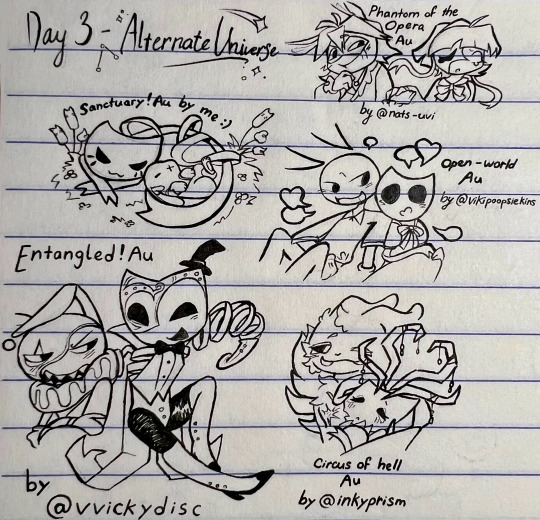
It is done finallyyy
This was my favorite to do but my god is it tedious
I really wanted to do the original designs justice (if i even did at all)
Phantom of the opera AU by @nats-uvi
Open-world AU by @vikipoopsiekins
Circus of hell AU by @inkyprism
Entangled Au by @vvickydisc
individual cuts below cause’ I love these sm
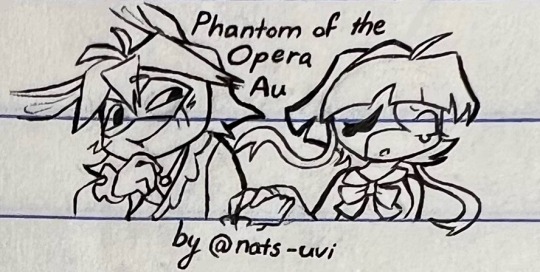
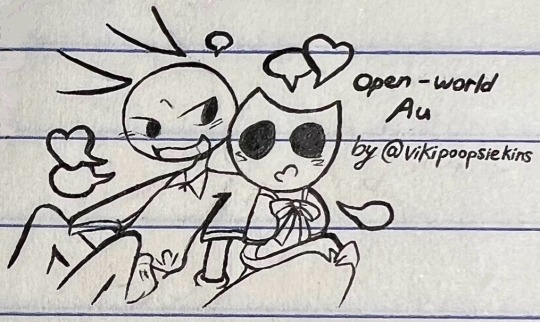
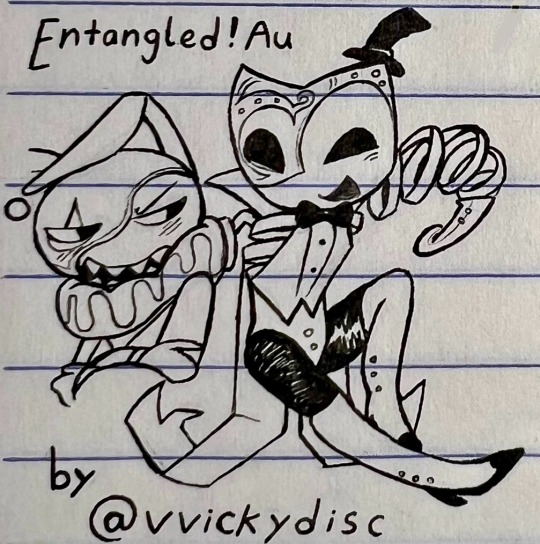
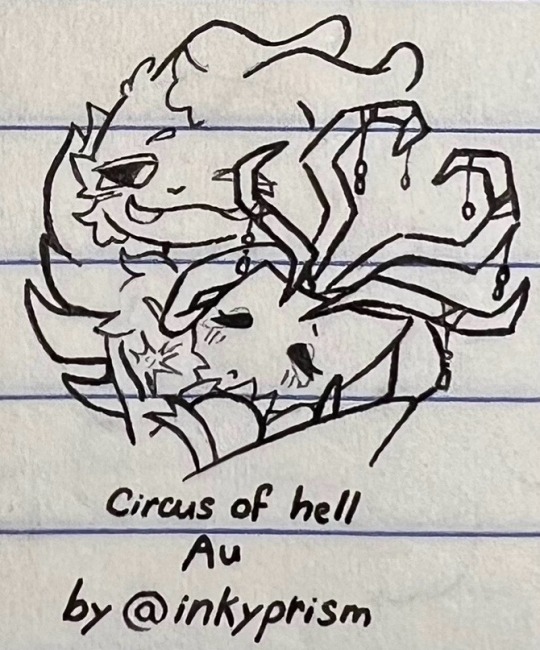
And merry Christmas!!
#Ok i lied#i said all the prompts are comics but this one technically isn’t#Its still a series of drawings tho#phantom of the opera one took the longest actually#But its my fav#suprisingly the easiest and fastest to do is entangled#Tho figuring out how to simplify the patterns but still making it kinda resemble the original is a painful process#These are all the au that ribbun is canon btw#Except for mine#cuz thats the only au i got#I have an actual ribbun one with a shoulder demon and angel design motif#But its like#literally just an alternate design#That i havent even settled on yet#mkay enough rambling now#Ribbun#ribbunweek2024#ribbun week#ribbunweek#the amazing digital circus#tadc fanart#Tadc au#operabunny#Jangle#bunnybow#ribbunny#ribunny#tadc gangle#tadc jax#gangle x jax
165 notes
·
View notes
Note
Can you make Gustave and Erik doing something? I don't know but in my mind, these two gets the poor Christine crazy.
(because yes, in my perfect world Christine lives and she's happy with her boys lol)
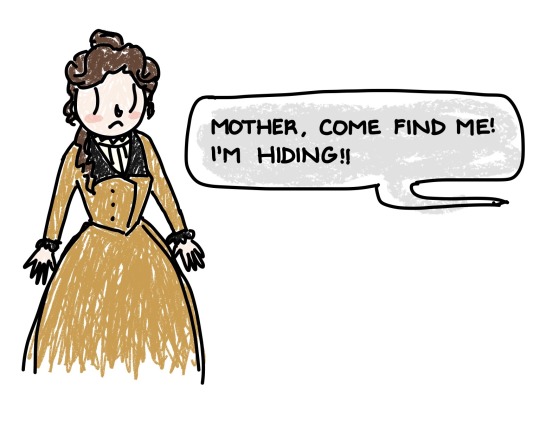

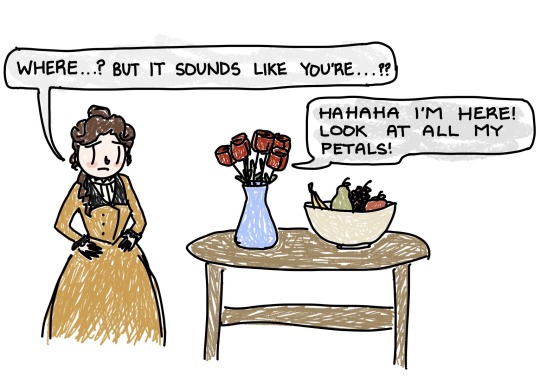
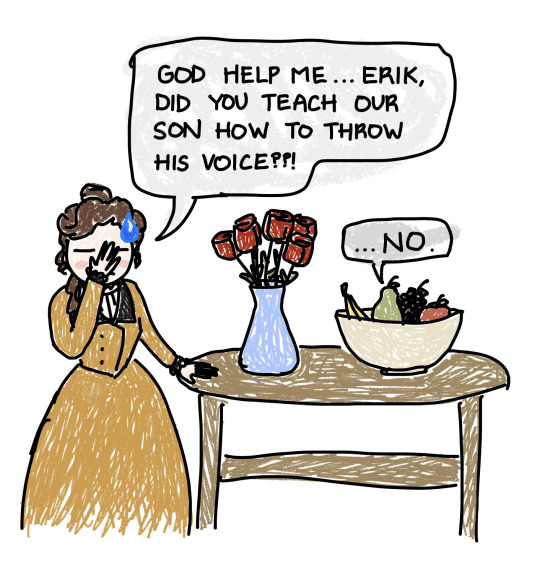
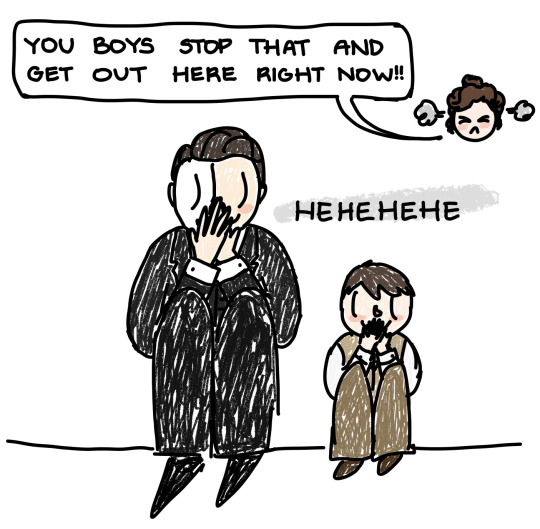
@batcount27 🍐👍
Behind the scenes:

#poto#the phantom of the opera#lnd#love never dies#asks#poto asks#batcount27#comics and doodles#poto doodles#her dress is based on one she wore in lnd but I simplified it bc I don’t got time to draw the embroidery lmao#lnd doodles
252 notes
·
View notes
Text
it's still facinating to me, that in the first production of Phantom Erik kills Carlotta's secretary and becomes morally ambiguous character, but in later ones the guy just falls to his death and would you look at that - now Erik is just poor meow meow
one scene, that's all
#why would you simplify a character#yes it's dificult to completely sympathise with the original#but isn't more interesting?#takarazuka#phantom#phantom of the opera
18 notes
·
View notes
Text
happy to be getting Understanders on my satine post :]
#hm i should make an original post tag#that first misunderstander left a bad taste in my brain#like that's NOT what i just fucking said !! I said she should commit violence and not think it hypocritical !!!#i want her to be interesting and complex and flavorful not a basic shallow pacifist who refuses to even look at guns#i want her to have Depth. and fun little complex opinions on pacifism#this is a fucking made up galaxy why do her political ideals have to be a simplified version of real life pacifism#why can't it be a made up space opera pacifism where she thinks armies shouldn't exist but people can shoot each other#the problem in mandalore wasn't that people had guns it was that people were always at war#the solution isn't to abolish guns it's to create circumstances that remove the need/desire for war
9 notes
·
View notes
Text

SIMPLIFY YOUR FRACTIONS!!!!!!!!!!
(source)
#opera tag#opera#reviews#SIMPLIFY YOUR FRACTIONS#fractions#math#did you not take third grade math /j
20 notes
·
View notes
Text
Practically All of the Non Hamato and Non Villian characters
(also known as I have brainrot about my turtles’ world and wanted to share the human (or ‘human’) squad with you!)

The closest manhole to the turtles’ lair is in the center of the courtyard of Arcadia Apartments, a small 2 story building with three apartments on each story, the owner’s apartment (although it's functionally abandoned), and a communal laundry/ other uses space. The residents of these apartments are the characters I want to share with you today!
April [Top Left]: A human woman in her early 20s just getting on her feet while going for her degree in Anthropology at the local community college. She is an amateur journalist who runs a blog about local cryptids and legends that people think are fun but no one really believes. April finds out the truth about these cryptids on one fateful rainy night on her way home from a late night class.
Casey [Bottom Left]: A 20 something year old mechanic by day and vigilante by night under the name The Penalizer. Due to issues with his mom and his dad out of the picture, he lives with and has not so legally recognized custody of his younger sister (although he has a hard time being there for her with everything going on.) He has played every sport known to man but his true love is ice hockey. Despite all logic, he is a morning person.
Angel [Not Depicted]: Casey’s 15 year old sister who has been mixed up with the Purple Dragons for some time. Due to Casey not being around to check her, she is able to go out with them without intervention.
Frankie and Sydney [Top Right]: A couple in their early 30s who live in the human world with their two young children: Sunita (age 5) and Timothy (age 2) [Not Depicted]. Frankie is an entertainer for rent at various establishments and events while Sydney works as a bartender at Run of the Mill. Sydney is a cool mom type with Frankie being a goofy doting husband. That one couple who give really good advice and are destined to be a cute old couple one day.
Irma [Middle Left]: A type A very structured and successful hardass (affectionate) woman in her late 20s maybe early 30s. Irma works at Stockman Enterprises in one of their engineering labs. At least… as a cover. She is a robotic human suit being piloted by a smaller yokai being that resembles a gray alien.
Keno [Small in the Center]: A mid to late 20s man who's just living life and working as a delivery man. He games in his free time and is honestly living the most chill life of all of them. Can and absolutely will cook for everyone, as long as they pitch in financially of course. Is the first and only person April told about the turtles after that fateful night. When he inevitably joins forces with the turtles, he is backup tech support, hacking, manning drones, machines, and cameras from their lair (or his own apartment setup) whenever Donnie’s unable to in the field.
Mei [Center Leftish]: I’m going to keep this brief as I’ve explained her backstory and role here. This is her in her younger days, back when she was more aggressive and inexperienced in the ways of the world outside the arena but after her defeat at the hands of Splinter/ Shen. Despite being a source of wisdom for her neighbors, I could see her becoming an antagonist with the right motivation.
This character doesn’t live with the others but I drew him here:
Yukichi [Bottom Right]: The cousin and mentee of Miyamoto Usagi. After an event in his past, he was shot through the multiverse, unable to find his way back. He travels around the multiverse as a ronin helping/ protecting people and exploring the various universes. He has a sword with the mystic power to control the wind (a la the mythology around Grasscutter and Yuichi having a mystic weapon).
It's likely I’ll do a separate post about him someday and why I made this decision in depth, but it felt too strange to change Miyamoto this much, but this version of Leo doesn’t match Yuichi’s personality. I thought the premise of taking a naiver and more optimistic character and having him become more like his mentor through experience would be interesting.
#lively's turtles#Frankie: God I love my wife <3<3<3 my queen <3<3 the brightest star above#Irma is inspired by Otto from A Man Called Otto#Utroms are just grey alien yokai in this universe instead of being kraang#Sydney's from the 2003 series#I wanted cyberpunk Usagi so bad I made him a completely different character#The idea that every member of the Usagi family has the Captain Marvel 'everyone calls me Fury' treatment is honestly really funny to me#Debating doing that to Yukichi (I know he has a different last name but side of the family is inconsistent in the wiki)#Its hard to tell but Venus' prosthetics are inspired by that one porcelain leg and its floral designs#The paintings themselves though match Future IDW Lita's tattoos#Venus' headwear is meant to be a combination of bubble to protect kappa dish and very simplified chinese opera headpiece#Also eyemarkings are jin chan gold diamonds + chinese opera eyeshadow#This is like my 3rd time posting about this version of Venus how did I get here#tmnt casey jones#tmnt#tmnt au#tmnt 2k12#rottmnt#tmnt 2k18#save rottmnt#save rise of the tmnt#save rise of the teenage mutant ninja turtles#tmnt keno#tmnt 2012#tmnt 2018#tmnt 2k3#tmnt 2003#tmnt venus#tmnt irma#tmnt april
11 notes
·
View notes
Text
Well since yall have brought my attention back to my post, I may as well add another, and probably cooler reference. In the end, when Holmes arrives and Kitty basically comes to save the day, the background music is shortened orchetral part of the finale of Don Giovanni, which shows Giovanni's downfall and death, as he is being dragged into Hell to be punished for his sins.
(I still love the first one mentioned more as the aria is one of my favorites from Don Giovanni)
Also I would've just reblogged, but it won't let me add the clip lol
And also almost full story explained below
Just to clarify the basic storyline of DG. The opera starts with Giovanni trying to seduce donna Anna. Well lets just say that does not go according to the plan and results in Giovanni killing Commendatore, Anna's father. Anna and her fiancé swear to have their revenge on Giovanni and not to mary until the former is achieved. Giovanni tries to seduce another woman later in the story, also while being pursued by donna Elvira one of his many former mistresses, who hopes he will come back to her. Giovanni doesn't want to, since he just wants to vontinue with his not really a boyfriend material lifestyle.
(Also reffering to the beginning, everywhere is said "seduce" I would think it is not about seducing as he is just trying to escape from her fucking house while she wants to unmask him. And I won't believe she is just "so much into him that she doesn't want him to leave". But yeah, that on your own interpretation I guess, since many stage productions put it simply like this. In my mind she just stopped her assailant and she hates his guts for everything he has done)
So the ending comes like this. Giovanni and his servant Leporello are at the cemetery. Giovanni sees the late Commendatore's statue and invites him over to dine with him. To his surprise and terror, the statue actually shows up and offers him a handshake. Giovanni accepting the handshake and refusing to repent dies, being dragged to Hell. Anna and her fiancé eventually get married, Zerlina and her husband are happy together and Elvira decides to join a convent.
The subplot with Zerlina, the woman Giovanni wants to seduce and Elvira I will leave out to simplify the story, as well as some other things. But if you are interested, look it up, youtube has many excelent recordings of the whole production.
(I would reccomend an older one though, since it usually portrays the opera set in the original time period and doesn't include conceptional and contemporary direction and scenic elements, therefore makes it a good starting point for opera newbies. Nothing against contemporarily produced performances, but if you want to get familiar with the source material and don't want to pre-read everything, those can make it harder to grasp what is actually going on.)
#sherlock holmes#john watson#granada holmes#jeremy brett#edward hardwicke#ILLU#the illustrious client#daily dose of granada holmes#granada sherlock#opera#mozart#don giovanni#mine
93 notes
·
View notes
Text
espite his towering influence, particularly on the academic left, Edward W. Said today seldom shows up on the list of dangerous thinkers loathed by conservatives or blamed for undermining the Western academy. Whether intentional or not, this conservative ambivalence about Said’s legacy is merited. While he is considered the godfather of postcolonialism, a theoretical approach toward accounting for the legacy of colonialism, Said’s personal life and intellectual output defy any simplifying labels that might be placed upon him — whether by the left or the right. Rather than a mere critic of the Western canon, Said was a sophisticated thinker who saw both colonizers and the colonized as inheritors of a shared cultural patrimony.
Said’s universalism shone brightly in his passion for classical music, a conservative artistic milieu if there ever was one. In addition to his university responsibilities and political activism, Said was the classical music and opera critic for The Nation from 1986 until shortly before his death from leukemia in 2003. His writings on music are less widely known than his political and scholarly output, though Columbia University Press has dutifully collected and published them over the years, including in a collection released this year, titled “Said on Opera.”
Said’s love of classical music was not merely a pastime. Toward the end of his life, Said attempted to blend two of his worlds — politics and music — by co-founding the East-West Divan Orchestra, which sought to unite Israeli and Arab musicians within a shared cultural project. The decision to create such an organization, not without controversy, was a unique distillation of Said’s perspective on culture and politics. While he excoriated the injustices of Western imperialism, including the way that systems of knowledge were often deployed to crush the oppressed, he remained an ardent universalist. Said saw the cultural achievements of the West as part of a shared cultural heritage to be critiqued and grappled with, not an alien imposition to be rejected. It is that legacy, expressed in his love of opera, which makes revisiting Said as a scholar and humanist more necessary than ever in an era of political polarization and cultural turmoil.
Said was a talented pianist, having practiced as a child during his upbringing in Cairo and played to small audiences while an undergraduate at Princeton University. His rapid scholarly ascent in literary studies and his simultaneous work as a public spokesperson for Palestinians in the United States did not allow him to develop his musical abilities. Yet he remained an avid fan and critic throughout his life. In Said’s near-worship of Glenn Gould, the Bach performer extraordinaire, one could see the lingering allure of the piano virtuoso and even a potential alternative life path.
Though his appreciation for classical music and opera predated his academic interests and political concerns, Said brought his unique critical sensibility to bear in his essays on the subject. As the theater and opera director Peter Sellars writes in his preface to “Said on Opera,” “If you have spent the day, the week, the month, and the year opposing, with every cell in your body, the ratification of the Oslo Accords, which go through in spite of your opposition, and inaugurate an era of unprecedented Palestinian suffering and oppression, you come to Beethoven’s Opus 110 Sonata ready for the heights and the depths, the heartbreak, the despair, and the unfathomable consolations, generosity, and relief of this music.”
90 notes
·
View notes
Note
Do you know why is 云深不知处 popularly translated as cloud recesses? As far as I know (by that I mean recesses), it makes no sense? Like what about recesses makes them unknown or deep
(Ngl when I first heard 云深不知处, I thought it was 云深不知出 and if you called some place that, no wonder someone would think you’d be trying to imprison them lol)
Hi there!
For context for others and the original poem this comes from first:
Traditional Hanzi:
1 松下問童子
2 言師採藥去
3 只在此山中
4 雲深不知處
Simplified Hanzi:
1 松下问童子
2 言师采药去
3 只在此山中
4 深不知处
Pinyin:
1 Sōngxià wèn tóngzǐ
2 yán shī cǎi yào qù
3 zhǐ zài cǐ shānzhōng
4 yún shēn bùzhī chù
English (Just gonna have to deal with my shoddy attempt):
1 Beneath the bow of pines, I asked a disciple
2 My Master has gone to gather herbs that grow wild, he said
3 Somewhere on these mountains
4 Hidden in the clouds unknown
And here we have chù and chū at the end of these sentences. Simplified 处, Trad. 處,. And 出 which is what areuils is speaking of! The character to classify a location a place (usually somewhere that's pretty official, think office, facilities departments, etc) as well as 出 being used to classify dramas and opera plays. The 处, 處, character also heavily denotes punishment and discipline. This makes it seem a lot more intimidating and nightmarish. For the teenage boy that Wei Wuxian was at the time, it kind of makes it a fun little word play of his expectations and early views of the Lans and Lan Wangji and his own wild imagination at times.
For the English choice that the original translator chose (ExR) I at least thought it was wanting to stick to the spirit of the ideal monk-like ambience the original poem was portraying and took some heavy liberties for an English audience to keep in mind that the Gusu Lan clan are heavily monastic in living and tradition and are also mysteriously ethereal and untouched by the world (like the master we never see on page). Recesses sounds more monastic and peaceful I suppose in English even if it's not linguistically similar in the slightest to the hanzi and denotes a pathway more so than the actual unknown of mountains.
I personally enjoy the shrouded steeps as one translation to go with, as you said the official English denotation lacks the feel of a lurking unknown that the boy in the poem seems worried over and still too immature himself to go in like his hermit master.
I was also not one to enjoy how 乱葬岗, Luànzàng Gǎng is translated as Burial Mounds, as that still feels far too respectful for it, even if meant ironically in English.
But the woes of translations eh? And that footnotes cannot be chapters in themselves for readers because it's all just so brilliant and wonderful to delve into.
#mdzs#mo dao zu shi#cloud recesses#rolls in poem symbolism for lans#ce la vie I guess though I still hate stygian seal#this is not greek!!! get that word out of here... >:T#no I did not spend like 3 hours lurking over this and my own wording hoping it makes sense
80 notes
·
View notes
Text
The Rise and Fall of the Fantasy Roman Empire (part one(?)
I have said in many other posts that the popular fantasy genre, especially in TTRPG settings (official or homebrew) is almost married to the European Middle Ages aesthetics while in fact often presenting a more "early modern" society, with the results of intercontinental trade, widespread printing, growing literacy and urbanization, etc. This isn't limited to the fantasy genre though. In space opera science fiction, though not as common nowadays, the idea of a Galactic Empire (or a Galactic Republic that turns into an Empire), in some way or another, was considered a staple of the genre. Why is that? (long post incoming)
Perhaps the most notorious thing to note here are the parallels to the rise and fall of the Roman Empire, as in, straight up retellings of it sometimes (Isaac Asimov's Foundation). The Roman Empire is considered in many ways to be The Empire, its influence on Western culture cannot be overstated and people project their own fears and anxieties when analyizing its rise, decline and fall, which is perhaps one of the most complex areas of historiography for these reasons.
And I'm going to take a stab at this incredibly complex topic and its influence on fiction, so this will be inevitably simplified, but as you might be aware, the Roman Empire really didn't fall just like that. Of course, the Byzantine Empire survived in the East, and if you're one of those annoying Paradox Interactive Byzantine fans you know they called themselves "Romans" right to the very end all the way in 1453 CE (for reference, the last Western Roman Emperor was deposed in 476 CE, almost a thousand years before). And also, the theory of the "barbarian invasions" is overstated, while there was certainly conflict and violence, it wasn't that the last legionaries fell to hordes of barbarians. In fact, many of those barbarians WERE Romans themselves, fought for the Roman empire as allies, and after they built their own kingdoms they kept using Roman titles and administration. On the other hand, you can see a decline on quality of life, literacy, trade, public works, administration, in many places, that would not be surmounted until late in the Middle Ages.
So, some say the Roman Empire never truly fell, other say that it was just replaced by feudal goverments as it declined, and yet others say that there really was a sharp catastrophic decline that justifies the idea of a "dark ages". So, what really happened?
Well, again, to oversimplify the most debated topic ever in historiography, the Roman Empire was big, and when it fell, different places took it differently. As I've said, the Byzantine Empire survived with a highly modified society but still "Roman" in a sense, for centuries, with a centralized state and army, though it also hit hard by wars with the Persian Sassanian Empire and later Islamic empires and it turned more and more to feudalism as time went on. However, the big urban centers, goverment bureaucracy, literate society (for the time), trade centers in the Middle East... might have declined, but never dissapeared. In fact, when the Islamic caliphates conquered the region, their rule (again, to oversimplify) was a version of Roman administration, and it was the abundance of classical literature and literacy found in the region that impulsed the Islamic Golden Age.
Meanwhile... Western Europe didn't do so great. I won't stay to analyze the entire reasons for it, but the Roman administration was replaced first by ad-hoc kingdoms and then a complex feudal system which you might be familiar with, where noble families and aristocrats ruled their own pieces of land and titles, swearing fealty to a king, much unlike the more state-based Roman bureaucracy (you could even go to an extreme and say there was no state per se, just alliances and fealty among aristocratic families). There was a sharp decline of literacy outside of the church, there was not an state that could guarantee the public works and vibrant Roman economy, and wars and plagues were devastating (sometimes against the "Roman Empire" itself, like in Justinian's attempts at reconquering the West). In places such as France and Italy, you could really talk about a huge decline.
The place that probably took it the worst, however, was Britain. Roman Britain was part of the Roman Empire, connected to its trade routes, economy, and cultural dynamics. The separation was devastating (at least to the Romanized Britons, perhaps it was good for other peoples in the island). Anything resembling central authority in Britain just ceased to be, replaced by warlords. Cities were abandoned. There was no trade with the rest of the world. Literacy declined so much that little is known about the period. Post-Roman Britain is the closest thing to a true "Dark Ages", in fact, it might be the prototypical dark ages for the English-speaking world.
And this is where I was getting at. The decline of the Roman Empire left a strong impression in all of Europe (hence the Rennaisance, praised at the time as the return of classical culture, but that's another overly complex historiographic topic). But it was in Britain that it left the most strong impression of a true Dark Ages. This was reflected in one of the English-speaking world's most prominent works, Decline and Fall of the Roman Empire by Edward Gibbon. So prominent that it inspired Isaac Asimov's Foundation trilogy almost beat by beat (someone joked, I don't remember where, that because of the number of Galactic Empires in science fiction, Gibbon is the most influential sci-fi writer)
And you can guess where this is going with fantasy. While I can't say Tolkien, the grandfather of modern popular fantasy (the father is Gary Gygax) copied Gibbon 1:1, you can feel the same conception of the British Dark Ages sweeping through his work. Ancient ruins of the glorious past in what could be termed, a bit tongue-in-cheek, as post-apocalyptic fantasy. Lord of the Rings reads sometimes like something set in the Early Middle Ages, the so called "Dark Ages", not so much elaborate plate armor and vibrant cities, but rather chainmail armor and abandoned ruins (like the romantic conception of the Fall of Rome, I haven't even touched on romanticism here...). This is of course not a coincidence. Tolkien's favorite inspirations (Beowulf, Norse myth) were from the Early Middle Ages.
And since this scenario was already popular in the English-speaking world, and RPGs such as Dungeons and Dragons (again, the father of popular fantasy) were based on Tolkien, you can see how this shaped our conception of not only the real-life Middle Ages, but also the fantasy genre in... general. You know the "Points of Light" "setting" for D&D 4e? Read all I've told you, and think about it. Really think about it.
As an addenum, I'm from Latin America of course, and unfortunately, our own fantasy and science fiction was never as popular as the English ones. However, there is something interesting to consider here. The Roman Empire in Iberia "fell" to the Visigoths, which tried to keep a kind of Roman administration, as successors to them. The Visigoths were in turn replaced by Al-Andalus, one of the most unique cultures of all times. It was the struggle between the Christian and Muslim kingdoms (the so-called Reconquista, a simplified and supremacist narrative that forgets about all the cultural interaction that existed for centuries) and then the conquest (or rather plunder) of America which left the most striking markd in Spanish and Portuguese classical (pre-XIX century) literature. What marks did those events leave in our fiction here in Latin America? Which on its own has become its own thing beyond Iberia...
If you want to read more about the *fall* of the Roman Empire, I cannot recommend enough this three part series from the blog ACOUP (I'll leave you to figure the acronym) which I took much information for what I said in this post from, and goes into much more depth which I could ever hope to: 1, 2, 3.
For my part, I actually intend this to be an introduction to a topic I've been wanting to talk since forever (a few days ago): Space Empires. Galactic Empires and Republics. You might think they are a dead trope, you might think "'well, they're more of fantasy than realistic science fiction", but I'm not exactly to prove that Star Wars is unrealistic, but rather to talk about the worldbuilding and narrative choices (and yes, perhaps more than a bit bit of economics, politics and logistics as well) of space empires, and what are some other options you could consider if you're building a space setting.
If you liked this post, and would like to read more like above, please, feel free to follow, and also consider donating to my ko-fi, as I intend to write more in the future:
#cosas mias#worldbuilding#writing#fantasy#history#science fiction#roman empire#long post#biotipo worldbuilding
105 notes
·
View notes
Note
honestly my ideal sephi "redemption" would be if he were reborn at the end of the story, like sailor saturn at the end of the infinity arc in sailor moon. That or young sephiroth shows up from a different timeline or smthn and gets the normal life he always wanted. I do think jenovaroth is so far gone that writing a satisfying redemption for him would be challenging, and idk if i trust square that much.
[now wether that applies to eoc!sephi is a different matter entirely lol]
That could definitely work too. And would definitely simplify things a bit more.
I've always sort of seen this happening through Kadaj, especially in Advent Children. Kadaj is an independent entity, but he also IS Sephiroth. And yet he was granted the mercy of joining the Lifestream at the end of AC. Aerith herself guided him there. And in Opera Omnia, Kadaj is semi-adopted by Zack and Aerith too. So I could see this endgame happening for Sephiroth if they went in that direction.
#asks#ff7#ffvii#final fantasy 7#sephcanons#sephiroth#Advent Children#ffvii advent children#final fantasy vii#Kadaj#aerith gainsborough#zack fair#opera omnia#Ff7r
25 notes
·
View notes
Text
cabaretic frye twins ideas


these are simplified fight club-ish designs because I still cannot figure out an interesting way to make it a cabaretic look w a coat. working on it tho. cabaretic fryes are my current brainrot
btw these are jacob and evie's songs from this au?? (there ain't no au even I just like making new designs for em)
#I made jacob cunty internationally tho#a.c.syndicate#assassin's creed#assassin's creed syndicate#jacob frye#evie frye#oleksas art (is murder)#Spotify
43 notes
·
View notes
Text
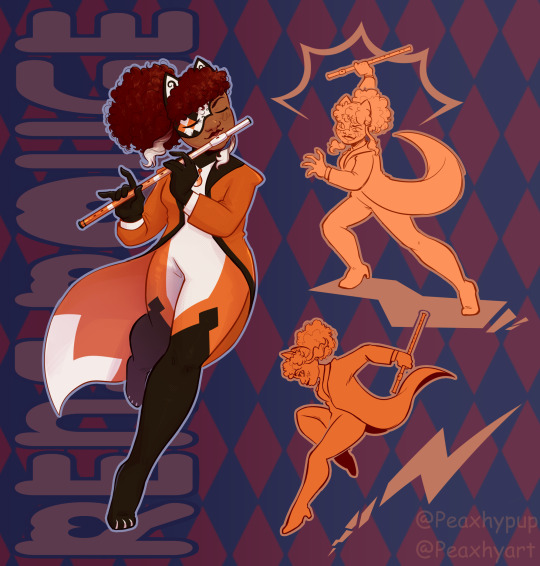
.
Rena Rouge redesign!!!
I took inspo from conductors, mardi gras, and her og design. This redesign was challenging for me to do since I do like her og design and didn't want to just copy-paste that one. My thought process and bts sketches are down below ^_^
My first thoughts were of conductors since she plays the flute, and conductors control the orchestra like her powers control illusions. That's why she has a button-up suit and even a waist-fabric thing in some sketches. The mask follows the same music theme with it being inspired by the phantom of the opera. I wanted to turn her ears into a scrunchie-type accessory and give her curlier hair.
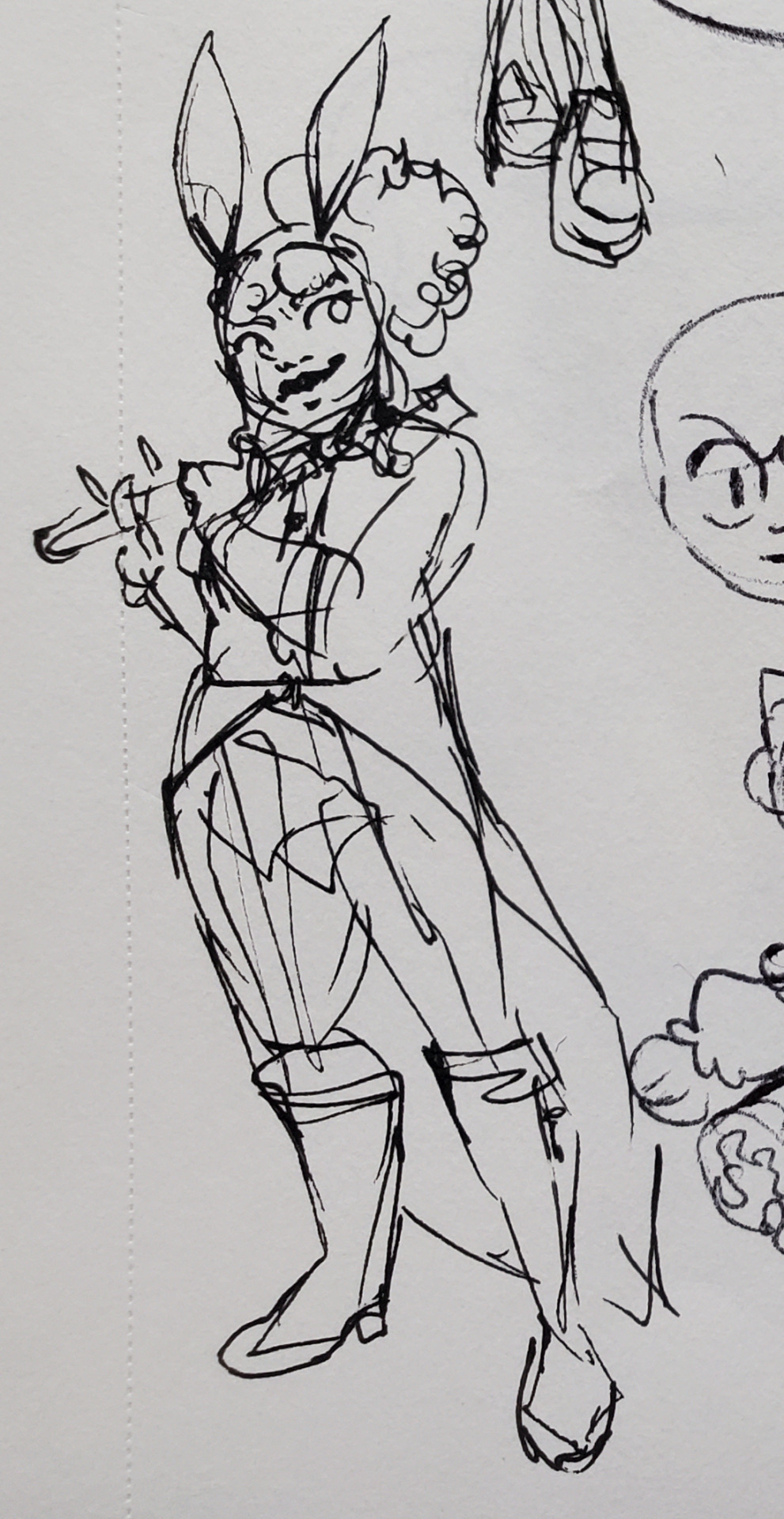
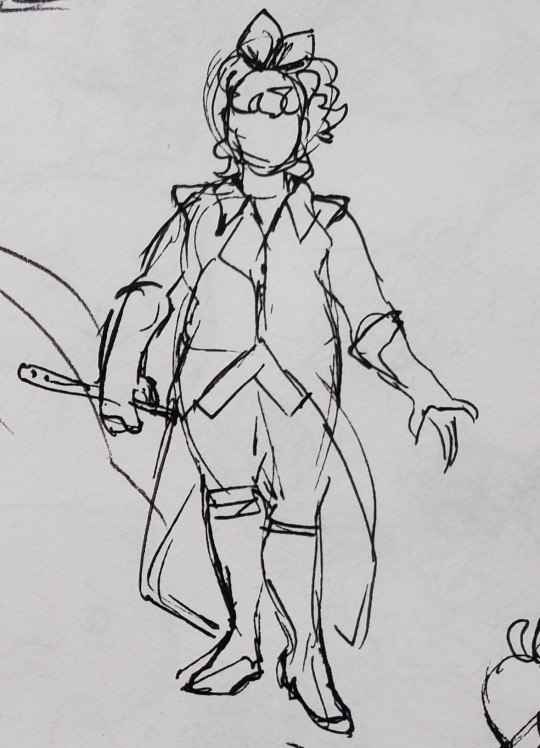
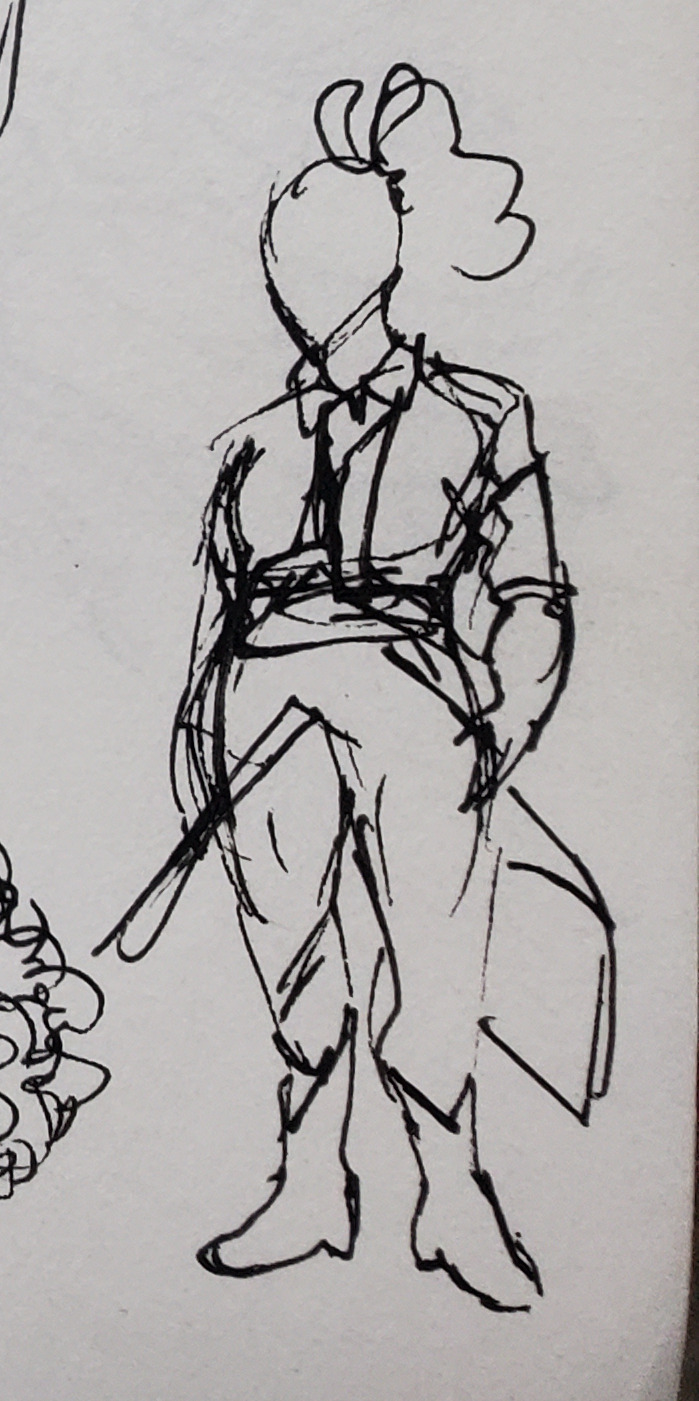
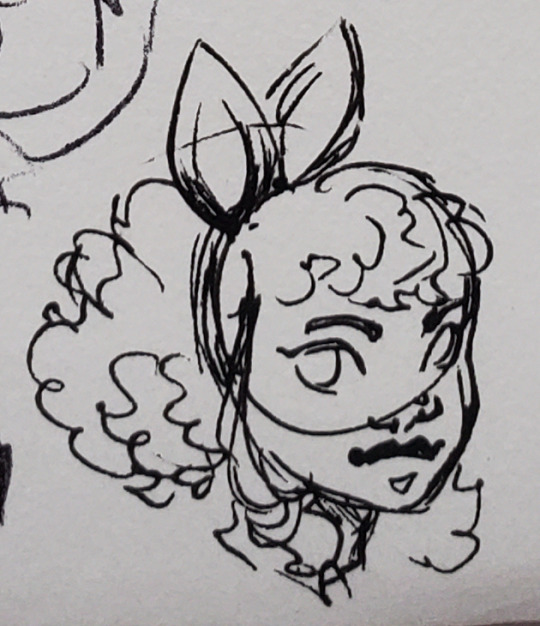

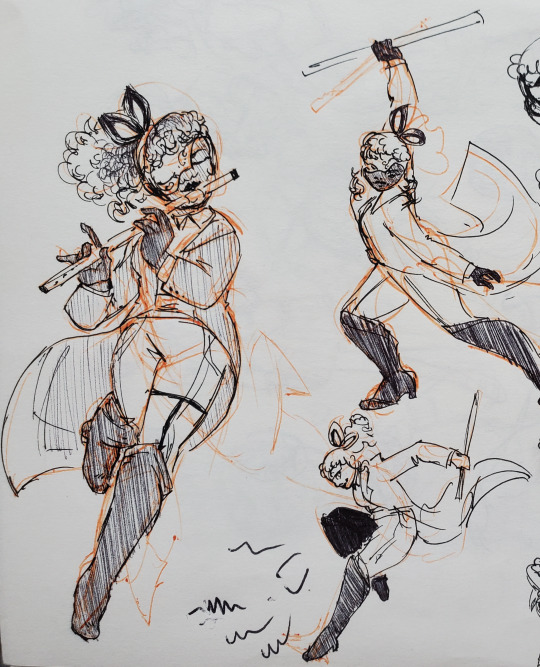
.
I thought more of the mask and made it look like a kitsune for a bit before remembering that Alya is Creole. So then I took inspiration from Mardi Gras which is huge in Louisiana. I also experimented with the ears more, making them attached to the mask instead of the hair. There are also more diamonds in her design, and I tried to simplify the design since it didn't feel enough like a hero suit. (No more boots!)
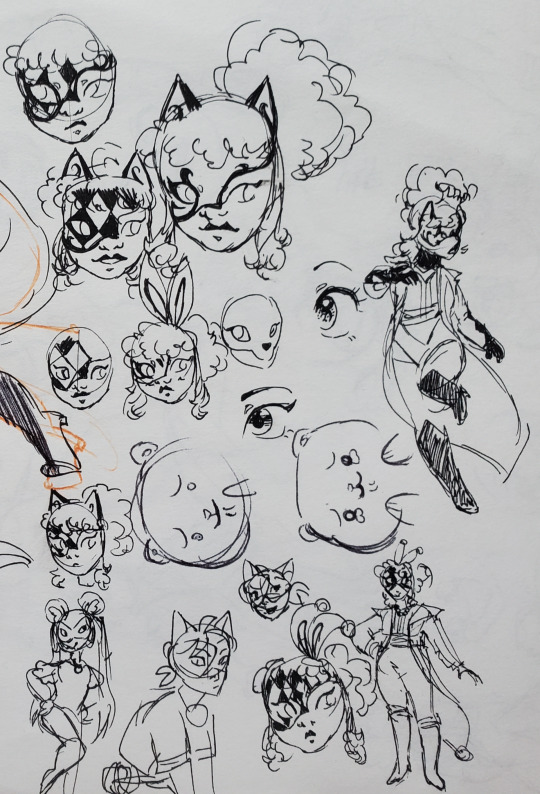

.
Colors, design placement, and the hair were a NIGHTMARE and I felt very indecisive, but I eventually settled on something I liked!

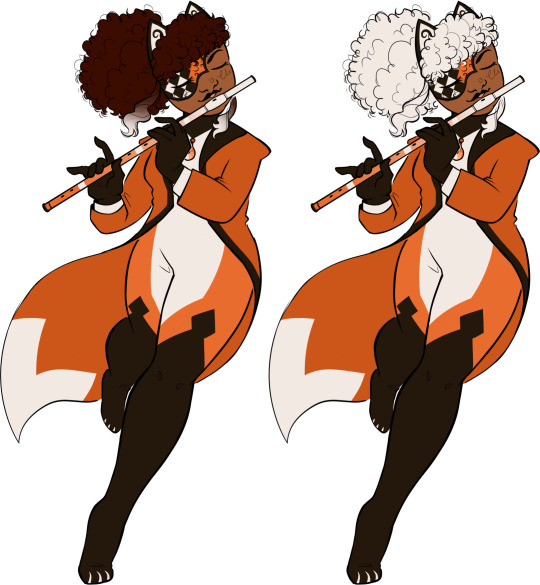
#rena rouge#rena rouge redesign#ml redesign#ml#miraculous#miraculous redesign#miraculous ladybug#peaxhy.art#peaxhypup#alya cesaire#ml alya
238 notes
·
View notes
Text
Marie and Michael
Some lore about what went on when puppeted Michael came home to Marie, who still lived in the Aftons' childhood home. Michael was an adult at this point, and had an apartment that he would not he returning to. The rental facility was elsewhere.
Sometimes Michael couldn't fall sleep in his apartment, and he would usually tell beforehand and inform Marie if he was gonna come over to see if he could sleep in his old room. This was one such night, he informed her before going down into the facility.
Elizabeth assumed that Michael still lived with Marie and kept a more simplified rendition of Michael's routine from when he was a teen. Both Michael and Marie were creatures of habit, so..
Tw: Descriptions of rotting Michael, gore, death, and body horror, I believe, about the effects on Michael's body from vomiting up an animatronic. Also Marie went momentarily insane.
Marie didn't have the money to move elsewhere after she momentarily died the first time, (the medical costs drained any money they had,) and so she stayed.
Didn't take her long to notice that that Thing wasn't her son.
He would usually announce his presence when he got home. He did not.
He stuck to a routine. He broke it as soon as he got in the door. He would announce that he was home, say hi to his Mom, and then go to the living room to watch TV. And so, she thought something was wrong.
Also, that shirt had someone else's name tag on it.
He was slightly slouching his shoulders. He hunched over forwards when he was exhausted. He was also leaning to one side and bending his other knee, as if one of his legs were too long or the other too short.
Those Aren't His Eyes. Those Are Not His Eyes.
She acted worried. What else was she to do? She didn't want to freak out incase whatever the hell this thing is tried to kill her (this was after dying the first time, but she was still unaware of the extent of her immortality.) She bit back her rage against whatever had taken her son, and played dumb.
He stood there and looked at her. (Elizabeth was arguing and screaming at the funtimes not to kill her mom.)
She stood there for a second, and approached worried, and worried over him as if she didn't notice.
He spoke. He sounded like he should. Exactly how he should. Slight lisp and all. (voice mimicking of Funtime Freddy applied. Michael had to occasionally speak to HandUnit.)
Circus Baby knew that she knew that her son wasn't her son right now. Circus Baby knew a circus act when she saw one. She did them quite often, after all. She had no plan for if someone would be home. And so, she waited in silence, observing.
Marie. Marie was shocked into silence at the sound of her son's voice. His posture changed, and he stood up a little, but still slouched his shoulders as he had when he was a teen. Marie racked her brain for any reason as to why whatever was inhibiting her son would be able to do any of that. To use his voice, but have the mannerisms of when he was a teen.
A stupider woman would've thought that something had reverted their son to be mentally a teen. But those eyes were not his own. And she wasn't stupid.
Those eyes would haunt her at night.
It said he was tired, and her son never went to bed before watching that vampire opera show on the TV, no matter how tired he was.
And she led it to his bedroom. And it sat on his bed. And she left it there.
She went into the living room, and recorded the opera show for him, to satisfy whatever part of her that thought that perhaps, this horrid creature that took her son's place, was in it's own body that it changed to look like Michael.
That Michael, her son, was still out there, alive. That he would come home, worse for wear, but alive.
She would lose her mind if her son was so suddenly dead as well.
She pretended not to notice the way he was covering up more. The way he smelled. All her hope was lost. She was just going through the motions, stuck in her head.
Until he came home, stumbling through the door, his cheeks ripped open to the bone and his throat grossly extended from vomiting up the thing.
At first she stood there above him, staring down at him on the floor from across the hallway.
Until she saw him mouth her name so weakly. His voice was hoarse, and she barely heard him. And he called out for his Mama, reaching out an emaciated hand to her. He would've been crying, had he been able to.
And then she was there on her hands and knees, cradling him. Holding him. This. This. This Was Her Son. He was not okay, but he was here with her now. He was alive, in some way.
She sobbed into her terrified and aching son, and he attempted to sob back through his distended throat.
Marie and Michael worked on getting some sort of thing so he could talk properly. And they succeeded, though he kinda sounded like a robot, but that was okay.
They had each other. They would not have to fear being alone again.
#Michael Afton#scooped michael#Circus Baby mentioned#Ennard#Marie#mrs. afton#Lore#Tw: gore#tw: death#Mama knows Her Son#And that Thing is Not Her Son#rambles
11 notes
·
View notes
Text



did some art for an oc for a sci fi setting I'm thinking a little. Her name will probably change but I was struck really strongly by his personality and details abt his character before I got a solid name. she was originally going to be thrown into a sort of space opera thing but I kinda want to write space station fluff now
[ID 1: A large white square with text and several pieces of art digitally drawn on. The main text reads "Taraneh. She slash he. Grew up on a planet; currently works maintenance on a space station. Aroace. Hobbies include trying to cook, kissing her giant insect friend, and trying to write poetry." Main text ends. The main drawing is a sketched headshot of Taraneh. She wears a hijab folded so that it wraps across the bottom half of his face, across her head, and draped around her shoulders. A hair band decorated with a simplified lunar cycle is partially visible on her forehead below her hijab. She has acne scars around her cheeks. Her pupils are dark and she has small wrinkles around her right eye. Her left eye is half closed and looking in a different direction, with more wrinkles beneath. Her eyebrows are scraggly and thin. She looks neutral. A smaller drawing towards the left shows Taraneh in a hijab that doesn't cover her face. Her smile is slanted, and she looks excited. There is a blank text bubble beside her. She is making broad gestures with her hands. A note beside it says "Can't emote with his full face but feels a lot of things and uses her hands to emote more." Note ends. A doodle towards the top is labelled "Work uniform." Taraneh wears a hijab similar to those used for sports, with no folds, and she wears a respirator on her face. She wears a tanktop above an undershirt which covers her arms. She wears jeans with kneepads and a carabiner with tools attached. She is sweating, wiping her face with a towel. Her other hand holds a toolbox. There are two drawings to the right. Both are colored. The first is labelled "Teens". In it Taraneh is thinner and shorter, a teenager. She wears a a layered outfit, with embroidery, ruffles, and flower patterns running down the arms. Her skin is dark, and she wears a teal hijab. He is waving at the camera. The second drawing is labelled "Early thirties". It depicts Taraneh more closely to how she appears in the other drawings, taller and with broader shoulders and slightly darker skin. She wears grey boots and a dark blue baggy jumpsuit. Over the jumpsuit she wears a dark grey simple skirt with large pockets running across it, and a grey coat with purple and orange coloring around the collar. Above that he wears a blue satchel. She wears a teal hijab and a dark blue hair band. He is standing with his arms at his sides. The fourth drawing is back to being colorless. It depicts a tall alien creature from the chest up. The alien's head is comparable to a praying mantis, except that there are odd cones at each side of their head, their mandibles sit in a circle on their neck, and the lower half of their face is a segmented vent-like structure. Their torso resembles a human, if it was covered in an exoskeleton. Taraneh has her arms wrapped around the alien's neck, and is leaning into their shoulder. She is hugging them. His eyes are closed and he looks happy. The alien seems startled and raised one of their claws in surprise. Both Taraneh and the alien are blushing, though the alien more so. The caption reads "Me and my boy best friend." END ID]
[Images two and three are higher resolution depictions of the last three drawings.]
38 notes
·
View notes
Text
2024 Book Review #27 – From the Ruins of Empire: The Revolt Against the West and the Remaking of Asia by Pankaj Mishra
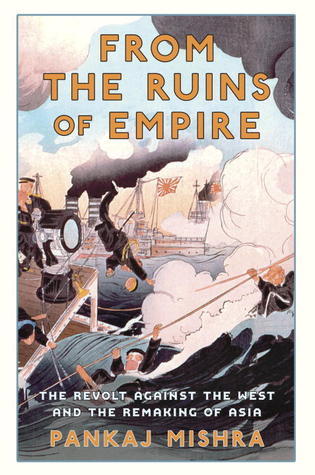
Yet another work of nonfiction I picked up because an intriguing-sounding quote from it went viral on tumblr. This was the fifth history book I’ve read this year, but the first that tries very consciously to be an intellectual history. Both an interesting and a frustrating read – my overall opinion went back and forth a few times both as I read and as I put together this review.
The book is ostensibly a history of Asia’s intellectual response to European empire’s sudden military and economic superiority and political imperialism in the 19th and 20th centuries, though it’s focus and sympathy is overwhelmingly with what it calls ‘middle ground’ responses (i.e. neither reactionary traditionalism nor unthinking westernization). It structures this as basically a series of biographies of notable intellectual figures from the Islamic World, China and India from throughout the mid-late 19th and early 20th centuries - Liang Qichao and Jamal al-Din al-Afghani get star bidding and by far the most focus, with Rabindranath Tagore a distant third and a whole scattering of more famous personages further below him.
The central thesis of the book is essentially that the initial response of most rich, ancient Asian societies to sudden European dominance (rung in by the Napoleonic occupation of Egypt and the British colonization of India) was denial, followed (once European guns and manufactured goods made this untenable) by a deep sense of inferiority and humiliation. This sense of inferiority often resulted in attempts by ruling elites and intellectuals to abandon their own traditions and westernize wholesale (the Ottoman Tanzimat reforms, the New Culture Movement in China, etc), but at the same time different intellectual currents responded to the crisis by synthesizing their own visions of modernity, and tried to construct a new world with a centre other than the West.
I will be honest, my first and most fundamental issue with this book is that I just wish it was something it wasn’t. Which is to say, it is a resolutely intellectual and idealist history, convinced of the power of ideas and rhetoric as the engine for changing the world. Which means that the biography of one itinerant revolutionary is exhaustively followed so as to trace the evolution of his world-historically important thoughts, but the reason the Tanzimat Reforms failed is just brushed aside as having something to do with europhile bureaucrats building opera houses in Istanbul. Not at all hyperbole to say I’d really rather it was actually the exact opposite – the latter is just a much more interesting subject!
Not that the biographies aren’t interesting! They very much are, and do an excellent job of getting across just how interconnected the non-Western (well, largely Islamic and to a lesser extent Sino-Pacific) world was in the early/mid-19th century, and even moreso how late 19th/early 20th century globalization was not at all solely a western affair. They’re also just fascinating in their own right, the personalities are larger than life and the archetype of the globe-trotting polyglot intelligentsia is one I’ve always found very compelling. While I complain about the lack of detail, the book does at least acknowledge the social and economic disruptions that even purely economic colonialism created, and the impoverishment that created the social base the book’s subjects would eventually try to arouse and organize. And, even if I wish they were all dug into in far more detail, the book’s narrative is absolutely full of fascinating anecdotes and episodes I want to read about in more detail now.
Which is a problem with the book that it’s probably fairer to hold against it – it’s ostensible subject matter could fill libraries, and so to fit what it wants to into a readable 400-page volume, it condenses, focuses, filters and simplifies to the point of myopia. Which, granted, is the stereotypical historian’s complaint about absolutely anything that generalizes beyond the level of an individual village or commune, but still.
This isn’t at all helped but the overriding sense that this was a book that started with the conclusion and then went back looking for evidence to support its thesis and create a narrative. Which is a shame, because the section on the post-war and post-decolonization world is by far the sloppiest and least convincing, in large part because you can feel the friction of the author trying to make their thesis fit around the obvious objections to it.
Which is to say, the book draws a line on the evolution of Asian thought through trying to westernize/industrialize/nationalize and compete with the west on it’s own terms (in the book’s view) a more authentic and healthy view that rejects the western ideals of materialism and nationalism into something more spiritual, humane, and cosmopolitan, with Gandhi kind of the exemplar of this kind of view. It tries to portray this anti-materialistic worldview as the ideology of the future, the natural belief system of Asia which Europe and America can hope to learn from. It then, ah, lets say struggles to to find practical evidence of this in modern politics or economics, lets say (the Islamic Republic of Iran and Edrogan’s Turkey being the closest). It is also very insistent that ‘westernization’ is a false god that can never work, which is an entirely reasonable viewpoint to defend but if you are then you really gotta remember that Japan/South Korea/Taiwan like, exist while going through all the more obvious failures. One is rather left feeling that Mishra is trying to speak an intellectual hegemony into existence, here. (The constant equivocation and discomfort when bringing up socialism – the materialistic western export par excellence, but also perhaps somewhat important in 20th century Asian intellectual life – also just got aggravating).
It’s somewhere between interesting and bleakly amusing that modernity and liberal democracy have apparently been discredited and ideologically exhausted for more than one hundred years now! Truly we are ruled by the ideals of the dead.
I could honestly complain about the last chapter at length – the characterization of Islam as somehow more deeply woven in and inextricable from Muslim societies than any other religion and the resultant implicit characterization of secular government as necessarily western intellectual colonialism is a big one – but it really is only a small portion of the book, so I’ll restrain myself. Though the casual mention of the failures of secular and socialist post-colonial nation-building projects always just reminds me of reading The Jakarta Method and makes me sad.
So yeah! I felt significantly more positively about the book before I sat down and actually organized my thoughts about it. Not really sure how to take that.
#book review#history#From the Ruins of Empire#From the Ruins of Empire: The Revolt Against the West and the Remaking of Asia#Pankaj Mishra
28 notes
·
View notes